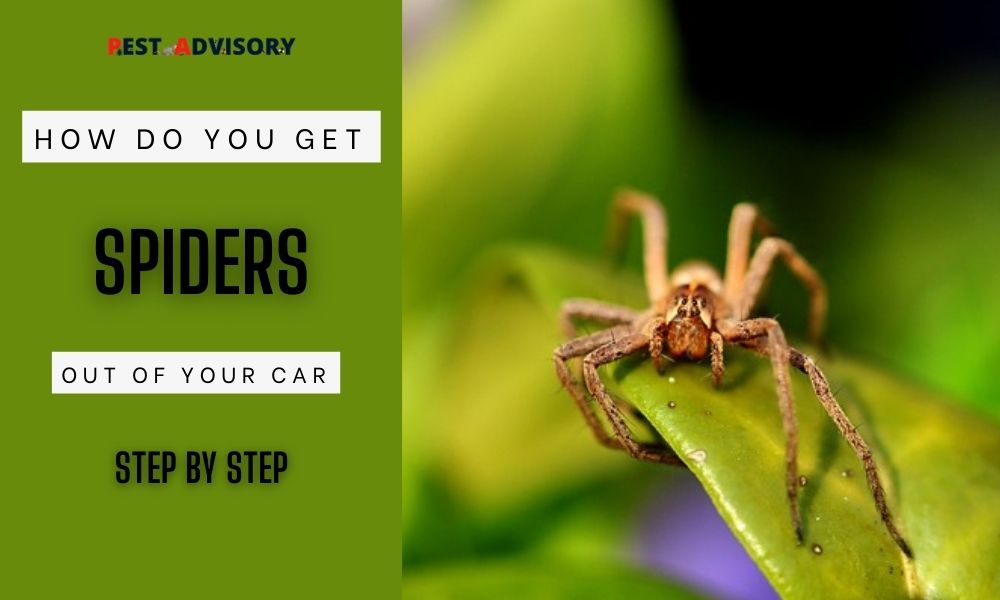Discovering spiders in your car can turn a peaceful drive into a nerve-wracking experience.
As creepy crawlers weave their way around, it’s essential to know how to handle this eight-legged invasion. Fear not!
In this guide, we’ll unravel the secrets to safely evicting these unwelcome spiders out of your car.
Important Note: If you're tired of pests and want a reliable solution, then you should definitely consider seeking help from a professional pest control company. DIY solutions can be effective, but if you're dealing with a significant pest infestation, you don't want to rely solely on DIY methods. Pest control companies typically don't charge huge fees. You can fill out this form to receive free quotes from the top local pest control companies, and compare the quotes and see for yourself. Then, finally, your pest problems will be eliminated for good.
From simple precautionary measures to clever tricks, buckle up as we embark on a journey to banish spiders and reclaim your car as a sanctuary of arachnid-free bliss.
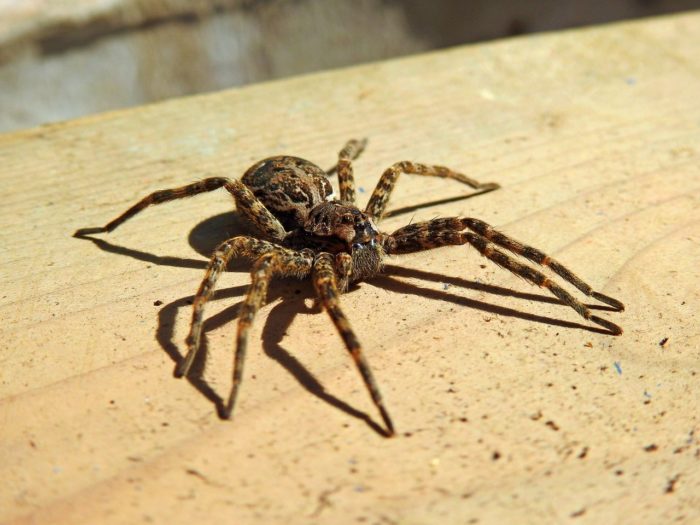
Assessing the Situation In Your Car
Before embarking on the mission to remove spiders from your car, it’s crucial to assess the extent of the infestation and identify common hiding spots. Understanding the situation will help you determine the best course of action and ensure thorough removal.
Identification
Take a moment to identify the types of spiders you’re dealing with. While most spiders found in cars are harmless, some may be venomous. It’s helpful to familiarize yourself with common spider species in your area to gauge any potential risks.
Inspect the Interior
Carefully examine the interior of your car, paying attention to corners, crevices, and dark areas where spiders often seek refuge. Glove compartments, seat pockets, air vents, and the trunk are common hiding spots. Look for webs, egg sacs, and any signs of spider activity.
Exterior Examination
Don’t forget to check the exterior of your car as well. Spiders may have built webs on the exterior mirrors, door handles, or in the engine compartment. Clearing these areas will prevent spiders from reinfesting your car.
Infestation Severity
Assess the severity of the infestation. Are you dealing with a few spiders or a more significant problem? Knowing the extent of the infestation will help determine the level of intervention required.
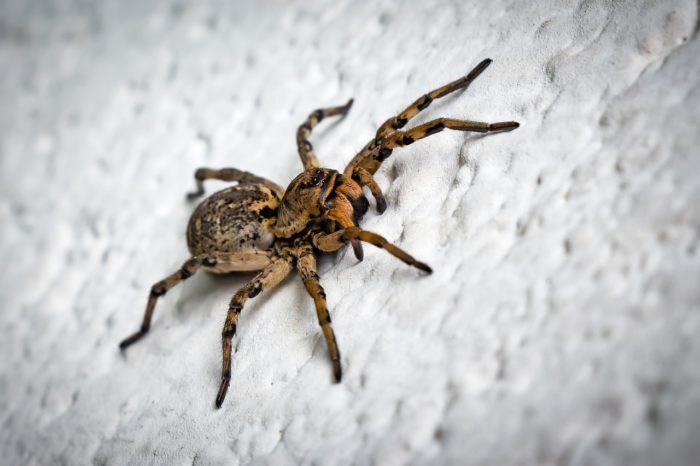
How Do You Get Spiders Out of Your Car?
Park in a Well-Lit Area
When preparing to remove spiders from your car, park it in a well-lit area. Adequate lighting will help you spot spiders more easily and ensure better visibility during the cleaning process.
Open All Doors and Windows
Open all the doors and windows of your car to create an escape route for the spiders. This will encourage them to leave the vehicle on their own. Allow some time for them to exit before proceeding to the next steps.
Use Compressed Air or Vacuum Cleaner
To physically remove spiders and their webs, you can utilize either compressed air or a vacuum cleaner.
Use compressed air with a narrow nozzle attachment to blow away spiders and dislodge their webs. Alternatively, a vacuum cleaner with a crevice attachment can suck up the spiders and their webs.
It’s essential to exercise caution while using compressed air to avoid damaging sensitive components in the car. When using a vacuum cleaner, ensure it’s suitable for use in a vehicle and follow the safety instructions provided by the manufacturer.
Clean the Interior
Thoroughly clean the interior of your car to eliminate any remaining spiders, webs, and debris.
Use a soft brush or microfiber cloth to reach into nooks and crannies, removing any remnants. Pay close attention to areas where spiders are likely to hide, such as under seats, in glove compartments, and between seat cushions.
Consider using a mild detergent or car interior cleaner to wipe down surfaces. Avoid using strong chemicals that may damage the car’s interior or leave harmful residues.
Natural Deterrents
After removing the spiders, consider using natural deterrents to discourage their return.
Peppermint oil, citrus sprays, or vinegar diluted with water can be effective in repelling spiders. Apply these natural deterrents to areas prone to spider activity, such as door frames, vents, and other entry points.
Keep in mind that natural deterrents may require periodic reapplication to maintain their effectiveness.
Store Items Properly
Organize and secure items within your car to minimize potential hiding spots for spiders.
Keep the interior tidy and clutter-free, as spiders are attracted to dark, undisturbed areas.
Use storage compartments, organizers, and seat covers to help keep your car’s interior less appealing to spiders.
Regular Maintenance
To prevent future spider infestations, establish a regular cleaning and maintenance routine for your car.
Regularly vacuum the interior, wipe down surfaces, and inspect for any signs of spider activity. Promptly address any spider sightings to prevent a reoccurrence of the infestation.
By following these step-by-step instructions, you can effectively remove spiders from your car and take preventive measures to keep them at bay in the future. Remember to exercise caution and wear protective gloves during the cleaning process.
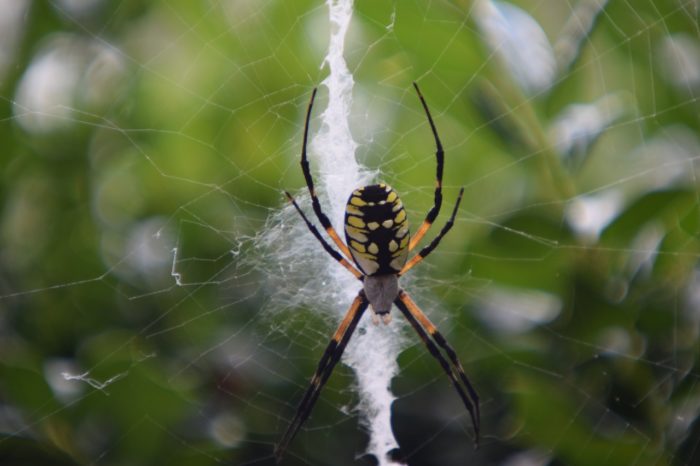
Why do I keep getting spiders in my car?
There can be several reasons why you may continue to find spiders in your car. Here are some possible explanations:
Openings and Gaps
Spiders can find their way into your car through small openings or gaps. Over time, seals around doors, windows, or other entry points may wear out or become damaged, creating opportunities for spiders to enter.
Proximity to Nature
If you park your car near trees, bushes, or other vegetation-rich areas, spiders may be more likely to find their way inside. Spiders often build webs and nests in outdoor environments, and if your car is in close proximity, they may see it as an opportunity for shelter or a potential hunting ground.
Food Sources
Spiders are attracted to other insects, which could be present in your car. If there are crumbs, food residue, or any other sources of sustenance, it can attract spiders and create an environment that supports their presence.
Climate and Temperature
Certain spider species are more prevalent in specific climates or seasons. If you live in an area with a high spider population or during warmer months when spiders are more active, you might experience increased spider activity in your car.
Neglected Maintenance
Lack of regular cleaning and maintenance of your car’s interior can create favorable conditions for spiders. Dust, debris, and clutter provide hiding spots and create an environment that spiders find attractive.
Preventive Measures
To minimize the likelihood of spiders in your car, consider taking the following preventive measures
- Inspect and seal any openings or gaps in your car to prevent spiders from entering.
- Park your car away from vegetation-rich areas, if possible.
- Keep your car clean and free of food debris.
- Regularly vacuum and clean the interior of your car.
- Use natural spider deterrents like peppermint oil or citronella spray to discourage spiders from entering.
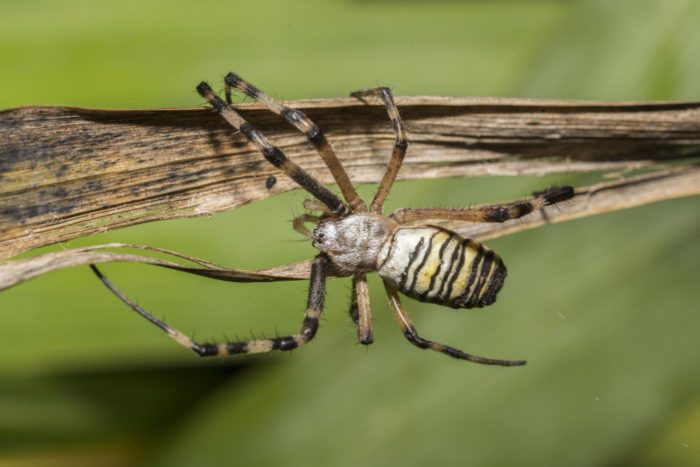
How long will a spider stay in your car?
The duration that a spider will stay in your car can vary depending on several factors. Generally, spiders will leave a car on their own if they can find an exit route.
However, if they have established a comfortable habitat with access to food sources, they may remain for an extended period.
The lifespan of spiders can range from a few months to several years, so their presence in your car could potentially last anywhere from a few days to several weeks or even longer if conditions are favorable.
It’s important to take proactive measures to remove them promptly to prevent a prolonged infestation.
Conclusion
Bid farewell to those pesky eight-legged intruders and reclaim the tranquility of your car!
By following the steps outlined in this guide, you now possess the knowledge and tools to evict spiders from your vehicle.
From thorough cleaning to preventive measures, you’re equipped to keep spiders at bay and enjoy spider-free journeys.
Drive with confidence, knowing that your car is a sanctuary where spiders dare not tread.

